Editorial Note:
At Applied Worldwide we aim to provide high-quality social media and internet content that demonstrates the practicality of sociological knowledge. The first task, though, is to understand the language used in sociology. Over the course of the last few years we have created and distributed many different social media graphics. On this page you will find an assortment of sociology terms and definitions with graphic designs for easy sharing on social media accounts like Twitter and Facebook.
Maybe you are looking to expand your social media presence. Perhaps you are looking for graphics for your syllabus or class resources. These graphics would be great if you are using social media in your teaching. There may be many teaching and learning applications for these graphics of sociology terms and definitions.
You are free to share these graphics on your own social media pages or use them for teaching materials. Enjoy and check back soon for more terms and definitions!
Sociology Terms and Definitions
Achieved Status
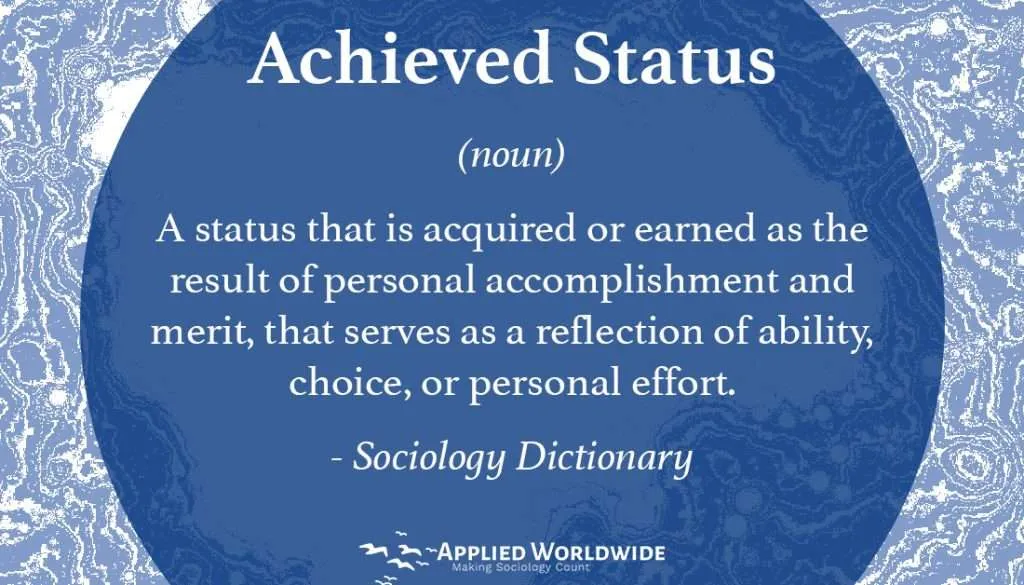
Achieved Status (noun): A status that is acquired or earned as the result of personal accomplishment and merit, that serves as a reflection of ability, choice, or personal effort. – SociologyDictionary.org
Agent of Socialization

Agent of Socialization (noun) – The significant individuals, groups, or institutions that influence our sense of self and the behaviors, norms, and values that help us function in society. – SociologyDictionary.org
Agrarian Societies
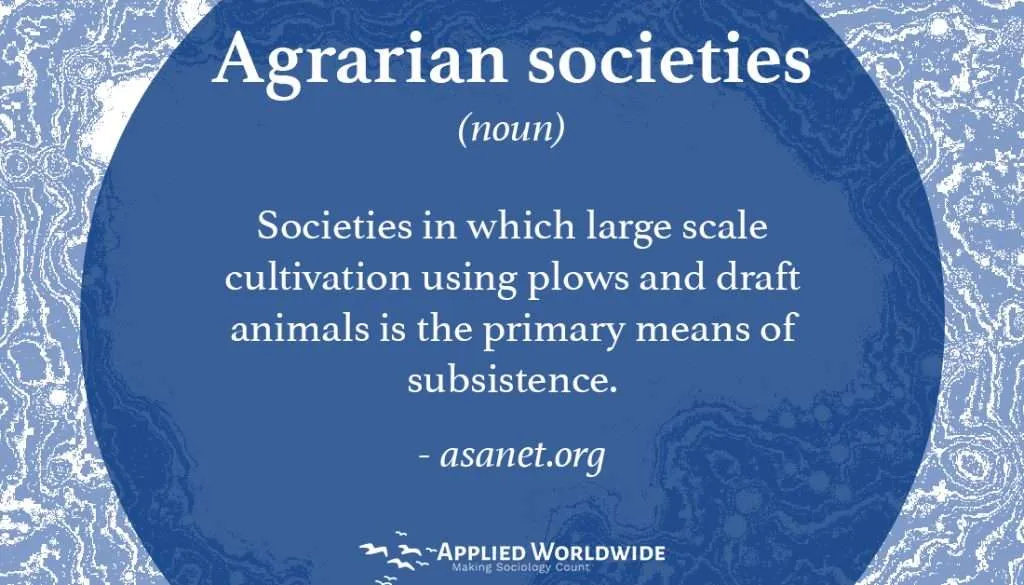
Agrarian Societies (noun) – Societies in which large scale cultivation using plows and draft animals is the primary means of substitence. – ASAnet.org
Alienation
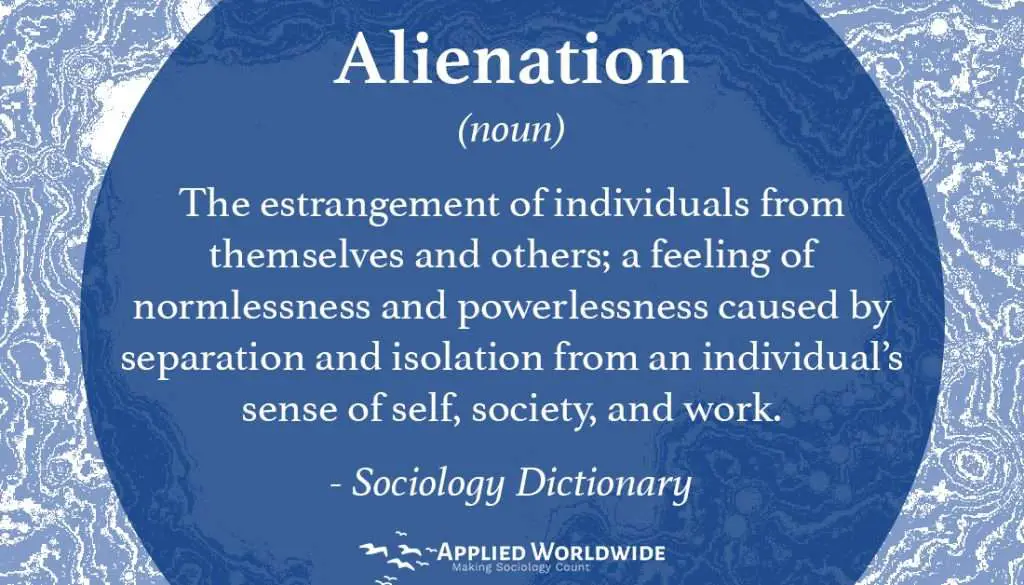
Alienation (noun) – The estrangement of individuals from themselves and others; a feeling of normlessness and powerlessness caused by separation and isolation from an individual’s sense of self, society, and work. – SociologyDictionary.org
Anarchy

Anarchy (noun) – The absence of any organized government. – Lumen Learning
Anomie

Anomie (noun) – Normlessness or social instability caused by the erosion or absence of morals, norms, standards, and values in a society; A personal state of alienation, anxiety, and purposelessness caused by social instability. – SociologyDictionary.org
Ascribed Status

Ascribed Status (noun) – A status assigned at birth or assumed involuntarily later in life, often based on biological factors, that cannot be changed through individual effort or achievement. – SociologyDictionary.org
Authority

Authority (noun) – Power that people accept because it comes from a source that is perceived as legitimate. – Lumen Learning
Bias

Bias (noun) – A tendency (either known or unknown) to prefer one thing over another that prevents objectivity, that influences understanding or outcomes in some way. – SociologyDictionary.org
Biological Determinism
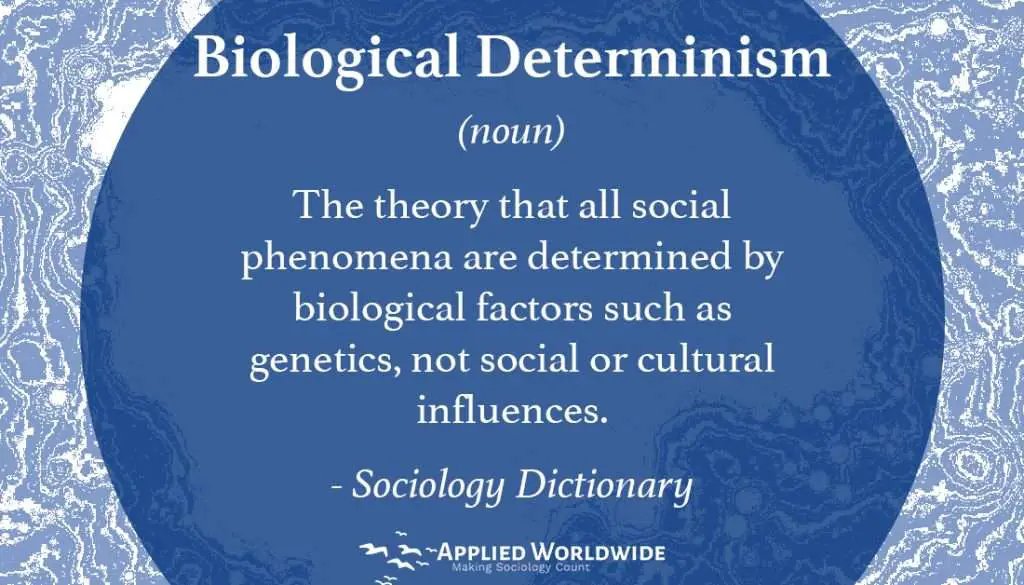
Biological Determinism (noun) – The theory that all social phenomena are determined by biological factors such as genetics, not social or cultural influences. – SociologyDictionary.org
Bourgeoisie

Bourgeoisie (noun) – The [economic] class that owns the means of production. – SociologyDictionary.org
Bureaucracy
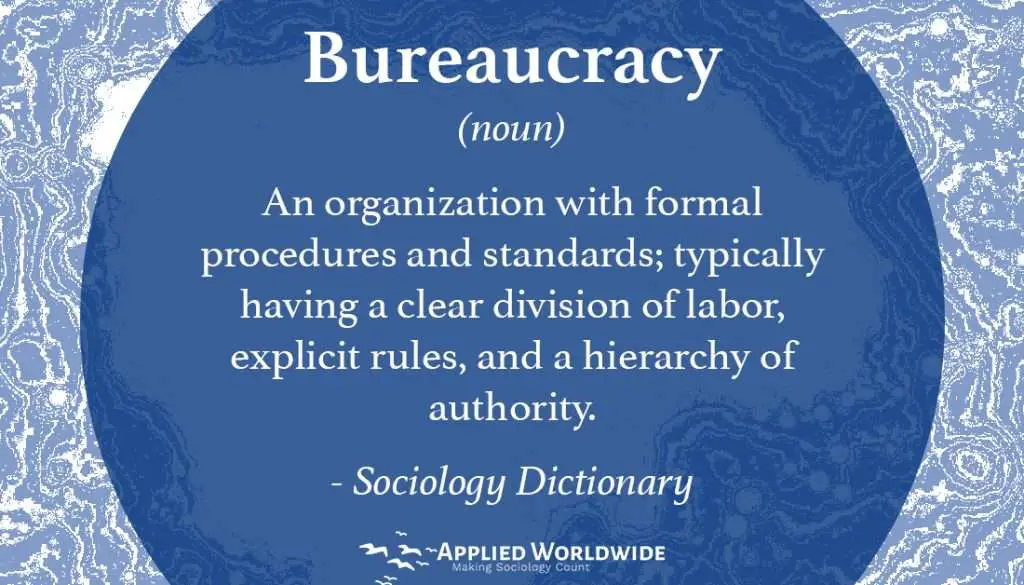
Bureaucracy (noun) – An organization with formal procedures and standards; typically having a clear division of labor, explicit rules, and a hierarchy of authority. – SociologyDictionary.org
Class Consciousness
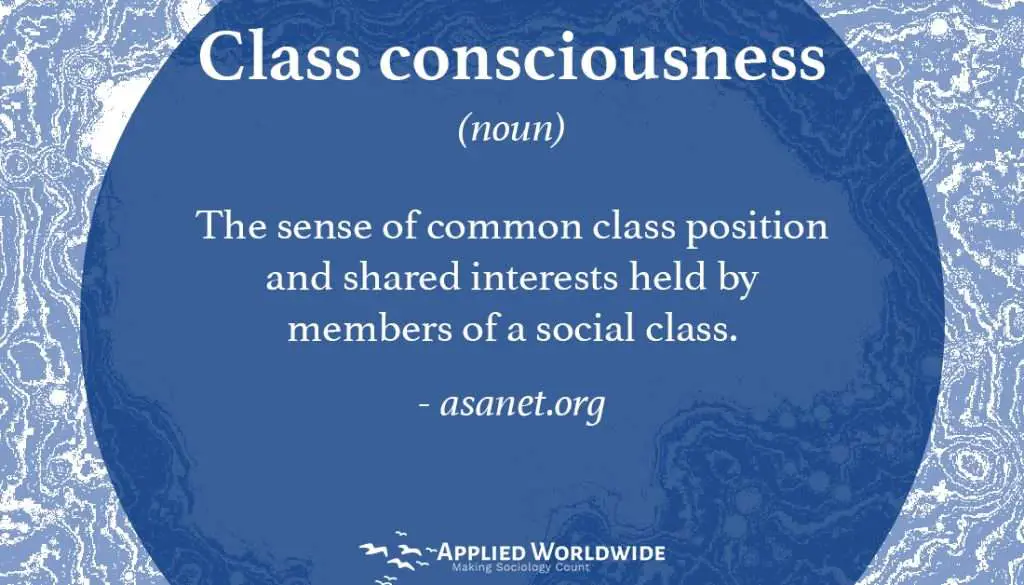
Class Consciousness (noun) – The sense of common class position and shared interests held by members of a social class. – ASAnet.org
Colorism
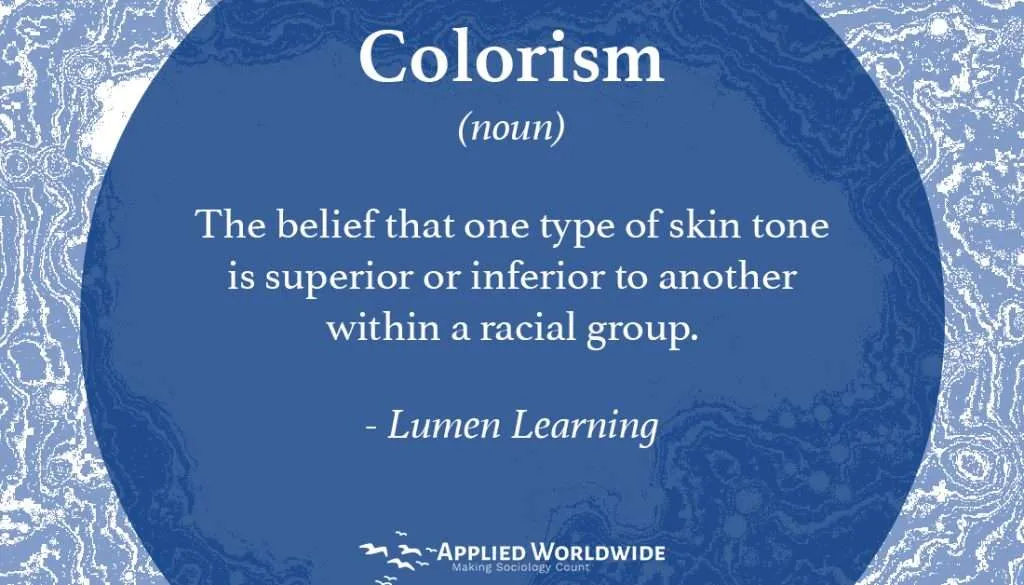
Colorism (noun) – The belief that one type of skin tone is superior or inferior to another within a racial group. – Lumen Learning
Commodification

Commodification (noun) – The changing of something not generally thought of as a commodity into something that can be bought and sold in a marketplace. – Lumen Learning
Content Analysis
Content Analysis (noun) – A research method used to describe and analyze in an objective and systemic way the content of literature, speeches, or other media presentations. The method helps to identify cultural themes or trends. – ASAnet.org
Content Analysis in our Everyday Lives
Counterculture

Counterculture (noun) – A subculture whose norms and values sharply contradict the dominant norms and values of the society in which it occurs. – ASAnet.org
Cultural Capital
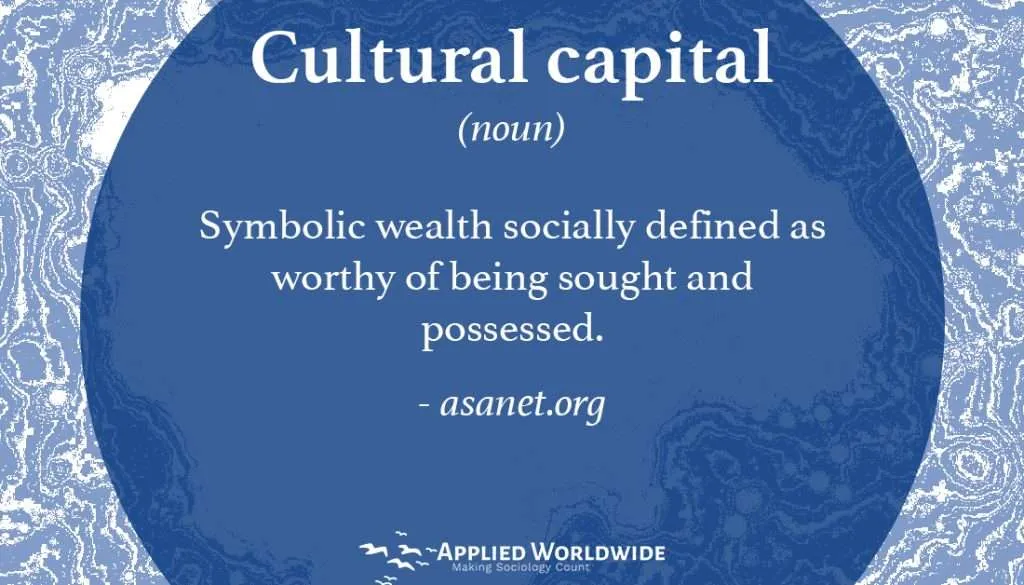
Cultural Capital (noun) – Symbolic wealth socially defined as worthy of being sought and possessed. – ASAnet.org
Cultural Determinism

Cultural Determinism (noun) – The view that the nature of a society is shaped primarily by the ideas and values of the people living in it. – ASAnet.org
Culture Lag
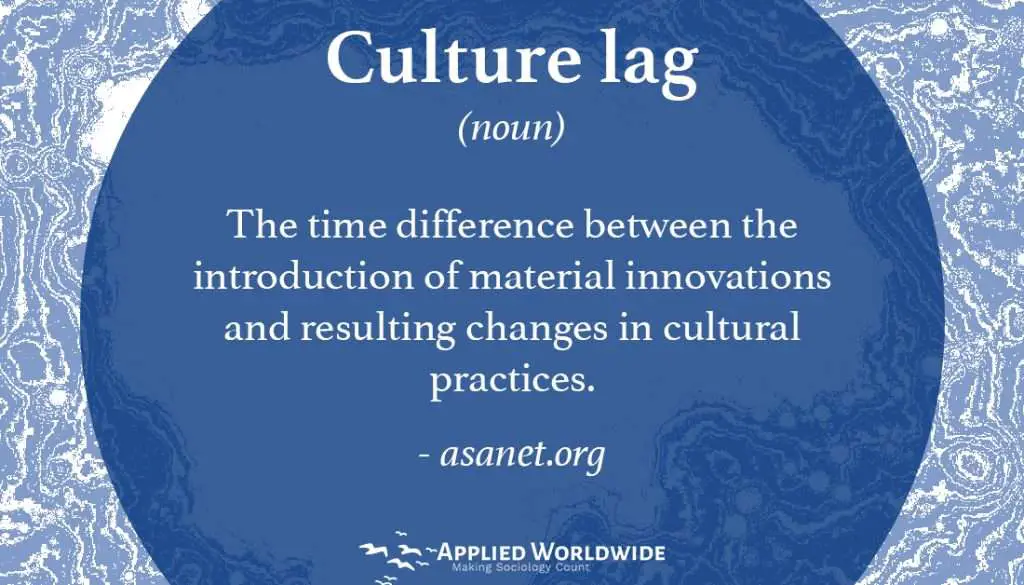
Culture Lag (noun) – The time difference between the introduction of material innovations and resulting changes in cultural practices. – ASAnet.org
Deduction

Deduction (noun) – A form of logical reasoning that derives a conclusion from a set of premises and the conclusion cannot be false if the premises are true. – SociologyDictionary.org
Dichotomy

Dichotomy (noun) – Two opposing parts; a distinct division. – SociologyDictionary.org
Egalitarianism

Egalitarianism (noun) – The principle that all people in a society have the same fundamental worth and should have equal civil, economic, and political rights. – SociologyDictionary.org
Empirical Evidence

Empirical Evidence (noun) – Data gained through observation or experimentation. – SociologyDictionary.org
Gemeinschaft

Gemeinschaft (noun) – A term used by Tonnies to describe a small, traditional, community-centered society in which people have close, personal, face-to-face relationships and value social relationships as ends in themselves. – ASAnet.org
Gender Stratification

Gender Stratification (noun) – The hierarchical ranking of men and women and their roles in terms of unequal ownership, power, social control, prestige, and social rewards. – ASAnet.org
Gentrification
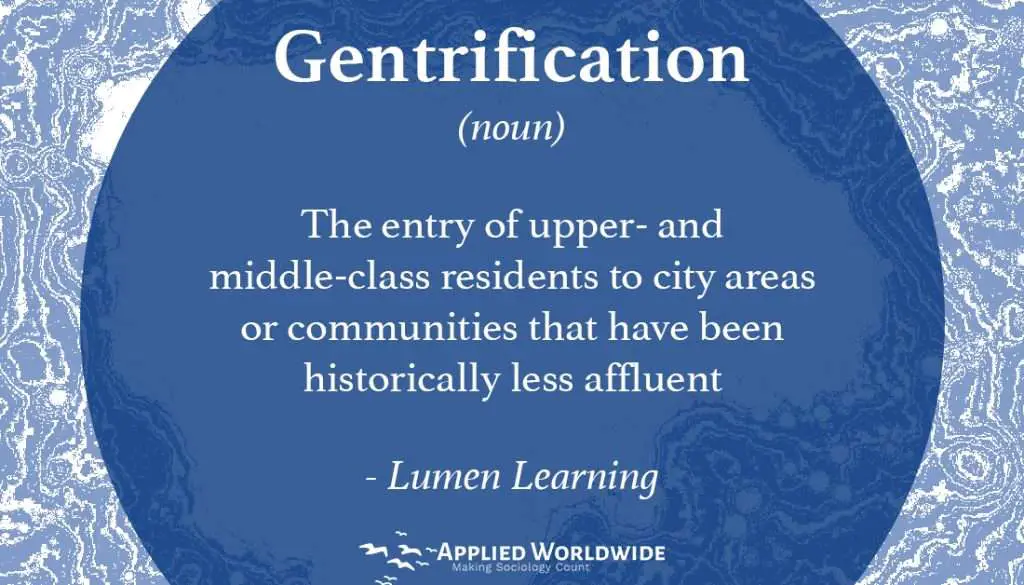
Gentrification (noun) – The entry of upper- and middle-class residents to city areas or communities that have been historically less affluent. – Lumen Learning
Gesellschaft
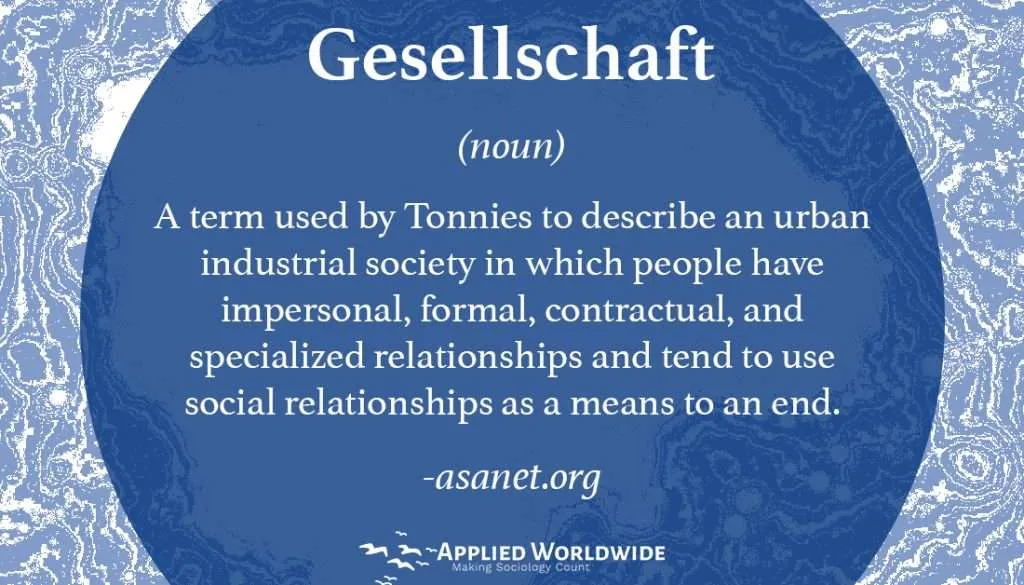
Gesellschaft (noun) – A term used by Tonnies to describe an urban industrial society in which people have impersonal, formal, contractual, and specialized relationships and tend to use social relationships as a means to an end. – ASAnet.org
Globalisation

Globalisation (noun) – The process by which individuals and groups in geographically separate societies are becoming increasingly interconnected through space by such means as communications media (books, television, the internet, etc) or physical travel. – DiscoverAnthropology.org
Hierarchy
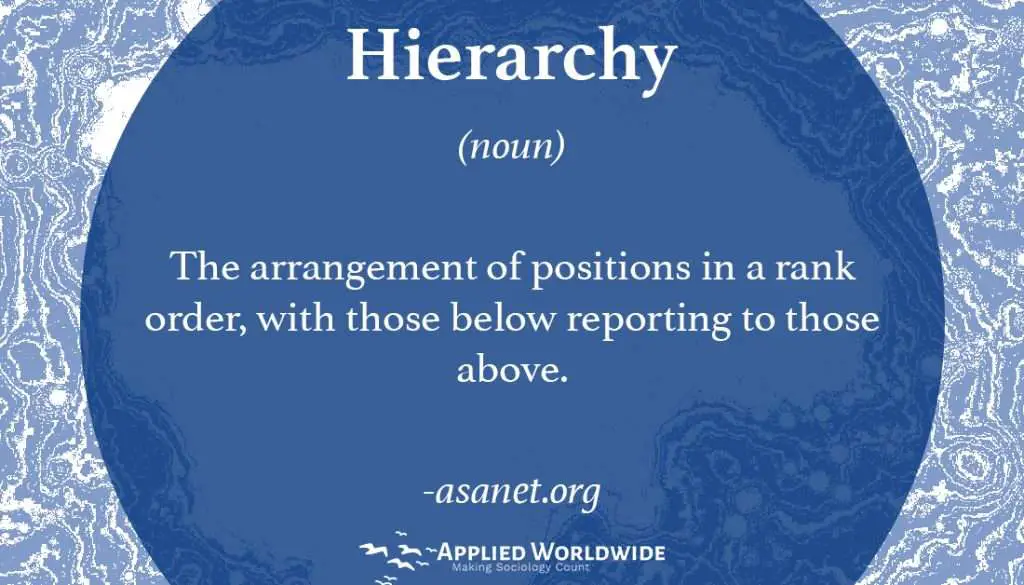
Hierarchy (noun) – The arrangement of positions in a rank order, with those below reporting to those above. – ASAnet.org
Institutionalization
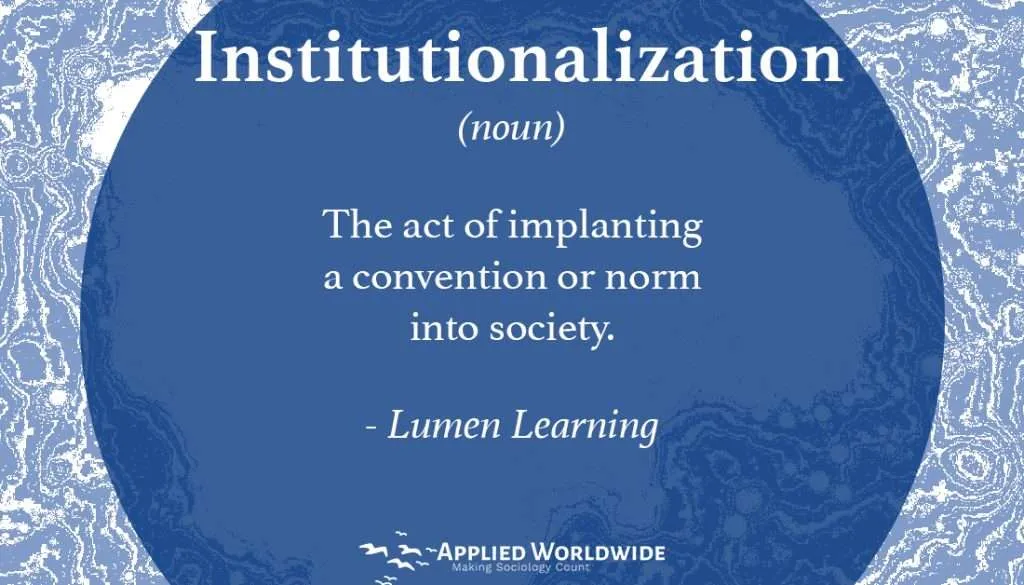
Institutionalization (noun) – The act of implanting a convention or norm into society. – Lumen Learning
Iron Cage
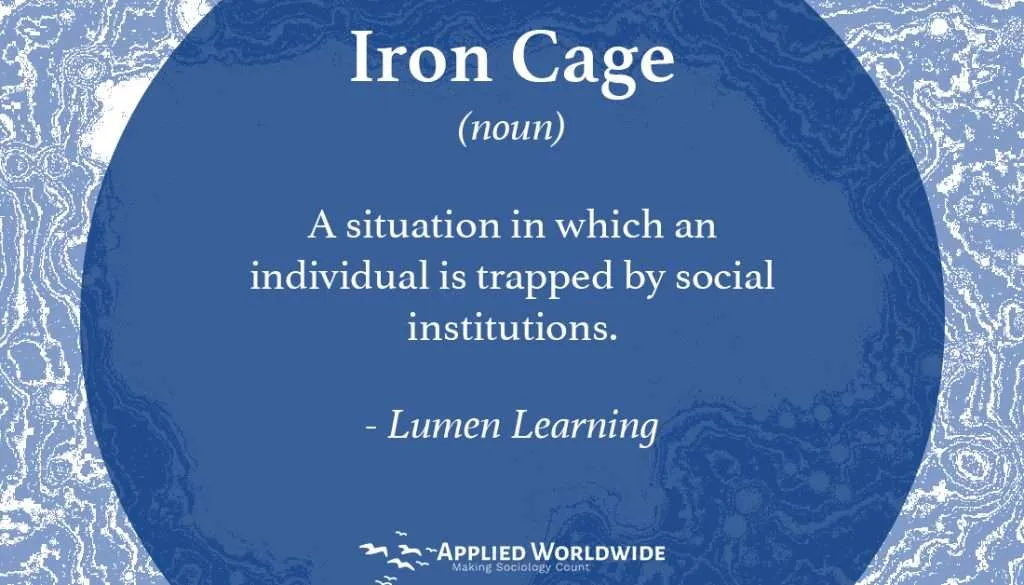
Iron Cage (noun) – A situation in which an individual is trapped by social institutions. – Lumen Learning
Marxism
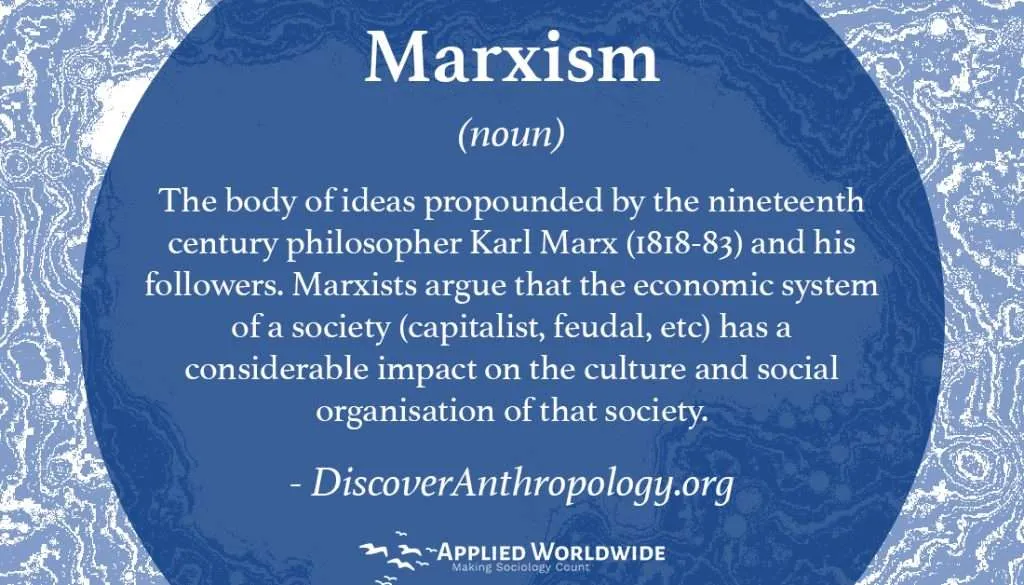
Marxism (noun) – The body of ideas propounded by the nineteenth century philosopher Karl Marx (1818-83) and his followers. Marxists argue that the economic system of a society (capitalist, feudal, etc) has a considerable impact on the culture and social organisation of that society. – DiscoverAnthropology.org
Power Elite
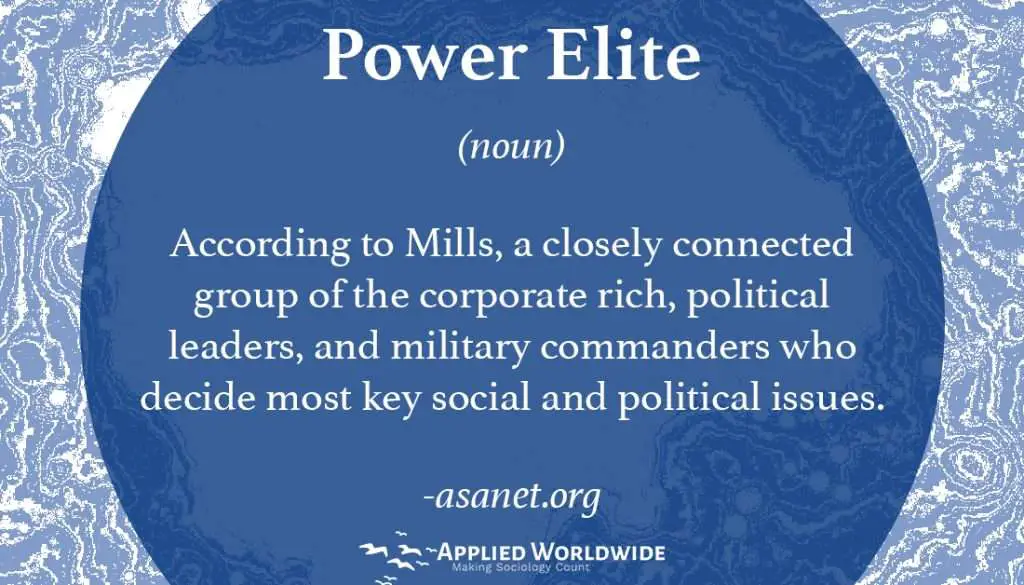
Power Elite (noun) – According to Mills, a closely connected group of the corporate rich, political leaders, and military commanders who decide most key social and political issues. – ASAnet.org
Racism

Racism (noun) – The institutionalized domination of one racial group by another. – ASAnet.org
Rationalization
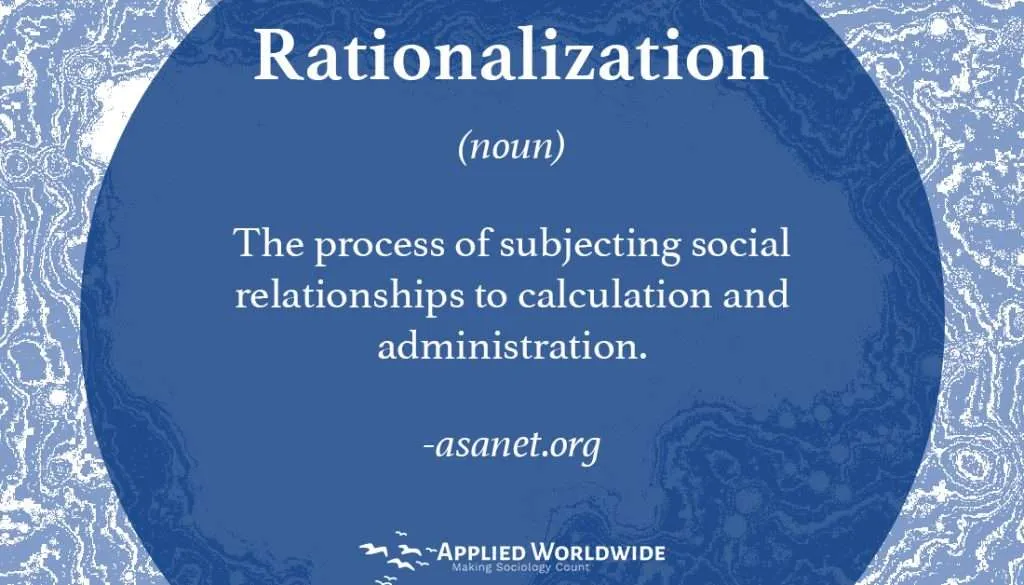
Rationalization (noun) – The process of subjecting social relationships to calculation and administration. – ASAnet.org
Reflexivity

Reflexivity (noun) – The ability to stand back and assess aspects of one’s own behaviour, society, culture etc in relation to such factors as their motivations, origins, meanings, etc. – DiscoverAnthropology.org
Social Control
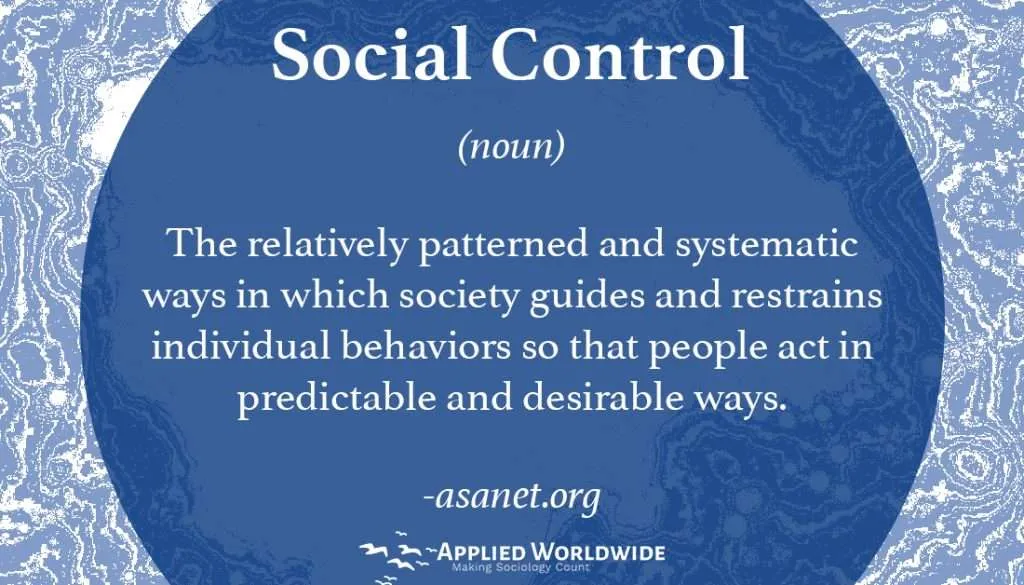
Social Control (noun) – The relatively patterned and systematic ways in which society guides and restrains individual behaviors so that people act in predictiable and desirable ways. – ASAnet.org
Social Mobility
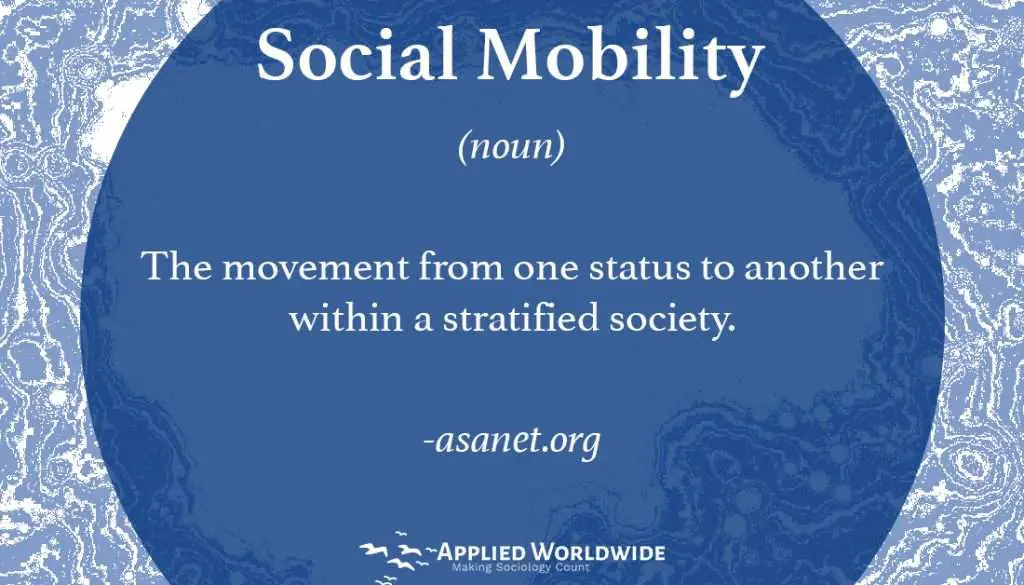
Social Mobility (noun) – The movement from one status to another within a stratified society. – ASAnet.org
Status

Status (noun) – A socially defined position in society that carries with it certain prescribed rights, obligations, and expected behaviors. – ASAnet.org
Structural Functionalism
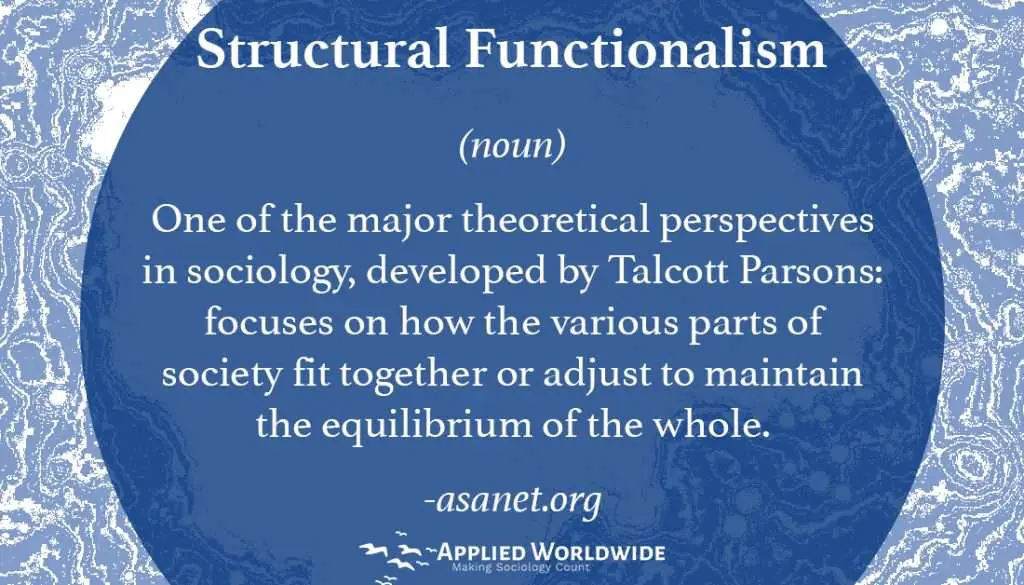
Structural Functionalism (noun) – One of the major theoretical perspectives in sociology, developed by Talcott Parsons: focuses on how the various parts of society fit together or adjust to maintain the equilibrium of the whole. – ASAnet.org







